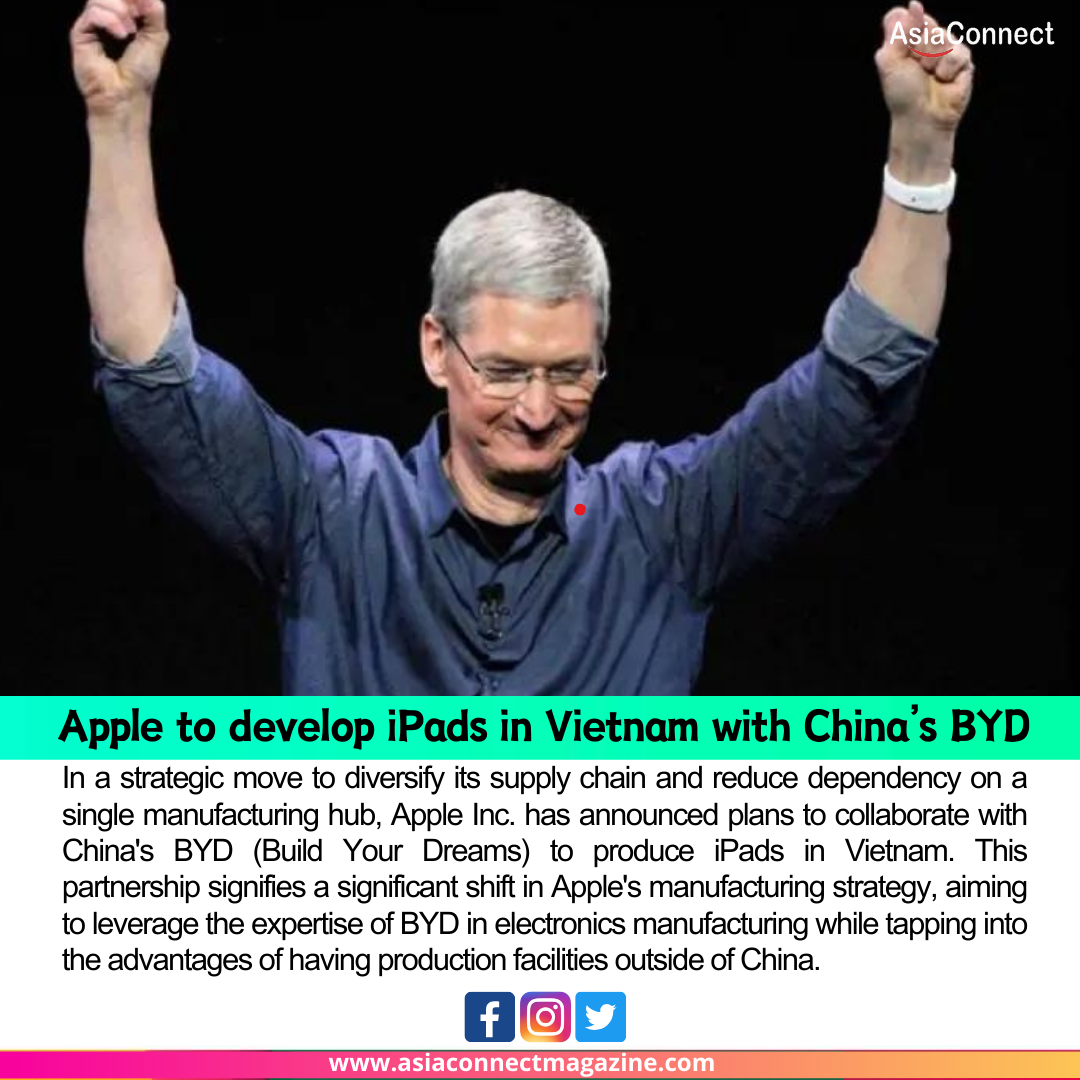In a strategic move to diversify its supply chain and reduce dependency on a single manufacturing hub, Apple Inc. has announced plans to collaborate with China’s BYD (Build Your Dreams) to produce iPads in Vietnam. This partnership signifies a significant shift in Apple’s manufacturing strategy, aiming to leverage the expertise of BYD in electronics manufacturing while tapping into the advantages of having production facilities outside of China.
The decision to develop iPads in Vietnam aligns with Apple’s ongoing efforts to mitigate risks associated with geopolitical tensions, trade uncertainties, and disruptions in the global supply chain. By diversifying production locations, Apple aims to enhance its resilience to external factors that may impact manufacturing operations.
BYD, a prominent Chinese manufacturer with expertise in electronics, automobiles, and renewable energy, is set to play a pivotal role in this collaboration. The partnership brings together Apple’s design and technology prowess with BYD’s manufacturing capabilities, creating a synergy that could benefit both companies.
Vietnam, with its growing reputation as an attractive destination for electronics manufacturing, provides a strategic alternative to China for Apple’s iPad production. The country offers a skilled workforce, favorable economic conditions, and a proactive approach to attracting foreign investments. Apple’s decision to set up iPad production in Vietnam is not only a testament to the country’s manufacturing capabilities but also reflects the tech giant’s commitment to fostering global economic diversity.
The move is also in line with Apple’s commitment to sustainability and environmental responsibility. BYD, known for its focus on green technology and renewable energy solutions, aligns with Apple’s goals to reduce its environmental footprint. Aspects such as energy-efficient manufacturing processes and responsible sourcing of materials are likely to be emphasized in this collaborative venture.
The iPad, a flagship product in Apple’s lineup, has seen consistently high demand globally. Shifting a significant portion of its production to Vietnam allows Apple to optimize its supply chain, potentially leading to improved efficiency, reduced costs, and faster time-to-market for iPad products.
While this partnership with BYD marks a notable step in Apple’s global manufacturing strategy, it also underscores the broader trend of multinational corporations diversifying their production locations. This trend has gained momentum in recent years, driven by a desire to spread risks, access new markets, and adapt to evolving geopolitical dynamics.
The collaboration between Apple and BYD is expected to have positive implications for both companies and the Vietnamese economy. Apple can benefit from BYD’s manufacturing expertise and contribute to the development of Vietnam’s electronics manufacturing sector. The partnership may also lead to job creation, technology transfer, and the establishment of a more extensive manufacturing ecosystem in Vietnam.
As Apple proceeds with its plans to develop iPads in Vietnam with BYD, the tech industry will be closely watching for the outcomes of this collaboration. The success of this venture could potentially set a precedent for other technology companies exploring diversified manufacturing strategies, emphasizing the importance of adaptability and resilience in the ever-changing landscape of global supply chains.





